Farce and swagger in Russian TV election debates
- Published
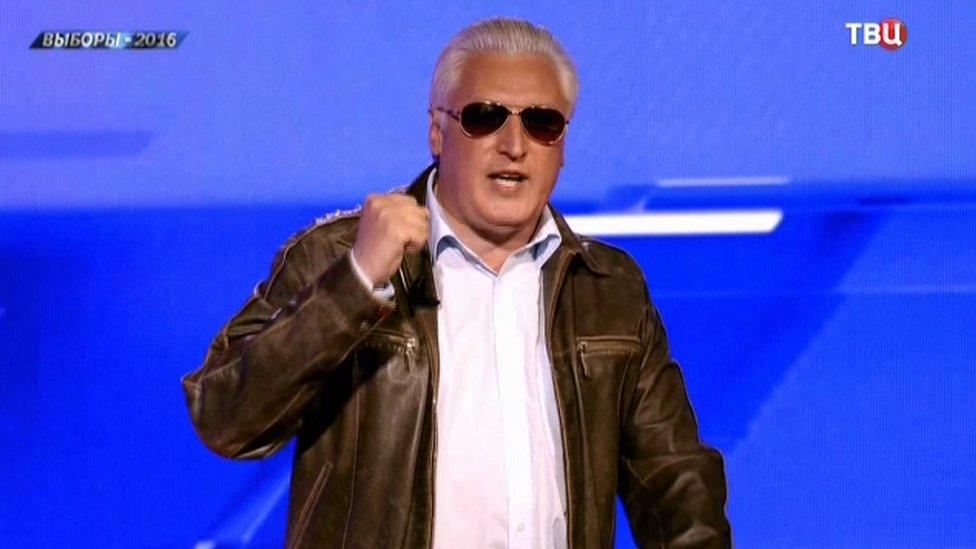
"The Terminator": Igor Korotchenko denounced opponents of Vladimir Putin during the debates
Russia goes to the polls on 18 September to elect a new State Duma, at a time when the country is suffering an economic downturn and tensions with most of the Western world.
Yet the nightly election debates on the dominant pro-Kremlin TV channels have at times been more like a circus show than a serious political discussion.
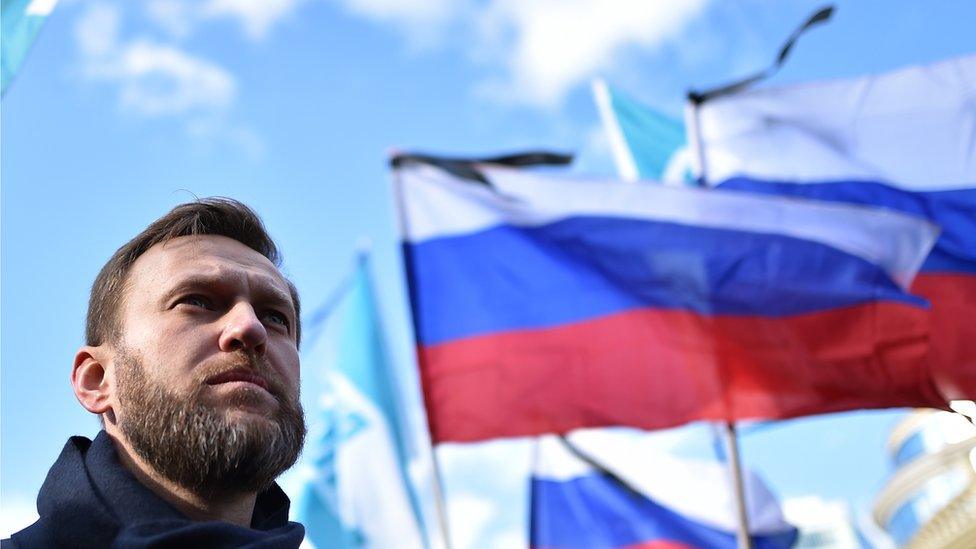
Russian opposition leader Alexei Navalny is not appearing in the debates or the elections
This time some outspoken opponents of President Vladimir Putin - almost completely absent from the previous parliament - have had a rare chance to put their case to a mass audience.
But significant figures are still being barred from the democratic process. They include Alexei Navalny, seen by many as Mr Putin's most formidable opponent, who is denied access to the main TV channels.
In a recent debate on Russia's most popular TV station, Channel One, one of the candidates, Igor Korotchenko, marched over to former Prime Minister Mikhail Kasyanov, leader of the pro-Western opposition party Parnas, declaring: "Mr Kasyanov, you have come to this debate without the flag of the country whose interests you defend." He then planted a mini Stars and Stripes on the Parnas leader's lectern.
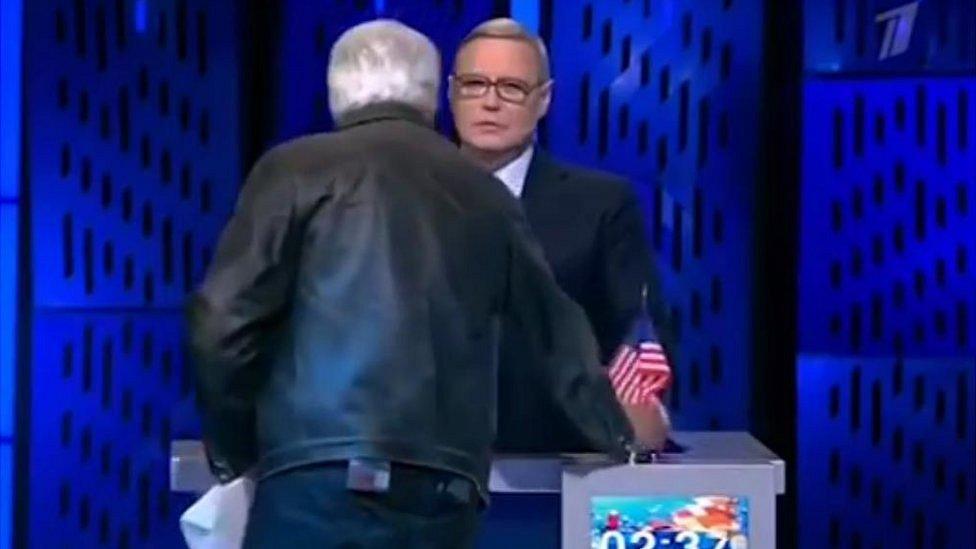
Mr Korotchenko planted a Stars and Stripes flag on opponent Mikhail Kasyanov's lectern during one debate
'Terminator'
Mr Korotchenko is a frequent guest on Russian TV talk shows, where he regularly defends the Kremlin and denounces its enemies. But he is not standing for the main pro-Putin party United Russia. Instead he is running for a smaller nationalist party, Motherland.
He has also changed out of his accustomed suit and tie, and donned jeans and leather jacket, and on occasion a pair of sunglasses.
Nicknamed "the Terminator", Mr Korotchenko's main function in the debates appears to be to smear the opposition.
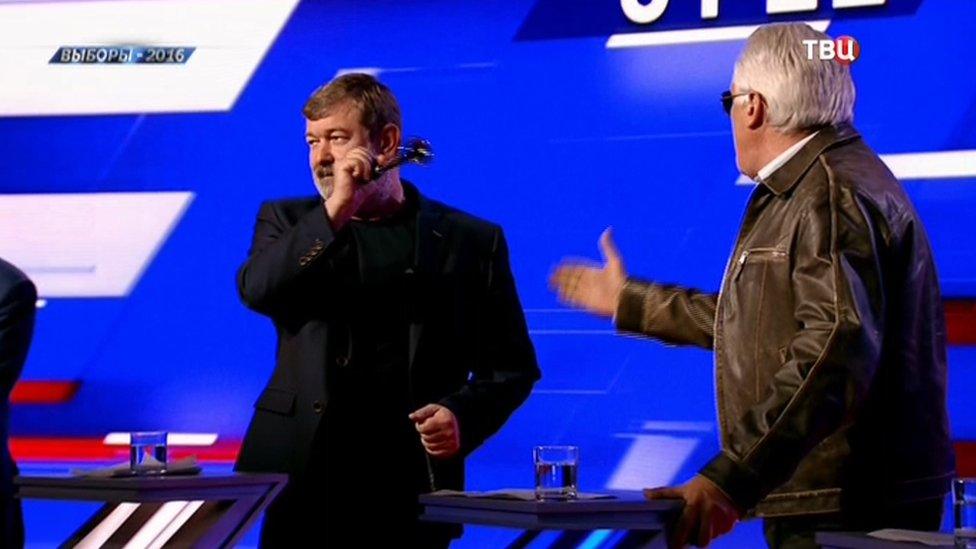
Vyacheslav Maltsev's taunting of Igor Korotchenko (right) prompted some viewers to label the debates a "clown show"
But when he came up against another Parnas candidate, Vyacheslav Maltsev, he met his match - of sorts. The tussle was broadcast on the Moscow government channel TV Centre.
Mr Korotchenko interrupted him, shouting that Parnas was "a fifth column financed by the West" - at which point Mr Maltsev took a small bicycle horn from his inside jacket pocket and sounded it in his rival's face.
It is hardly surprising that social media users and TV critics alike have labelled the debates a "farce" and a "clown show".
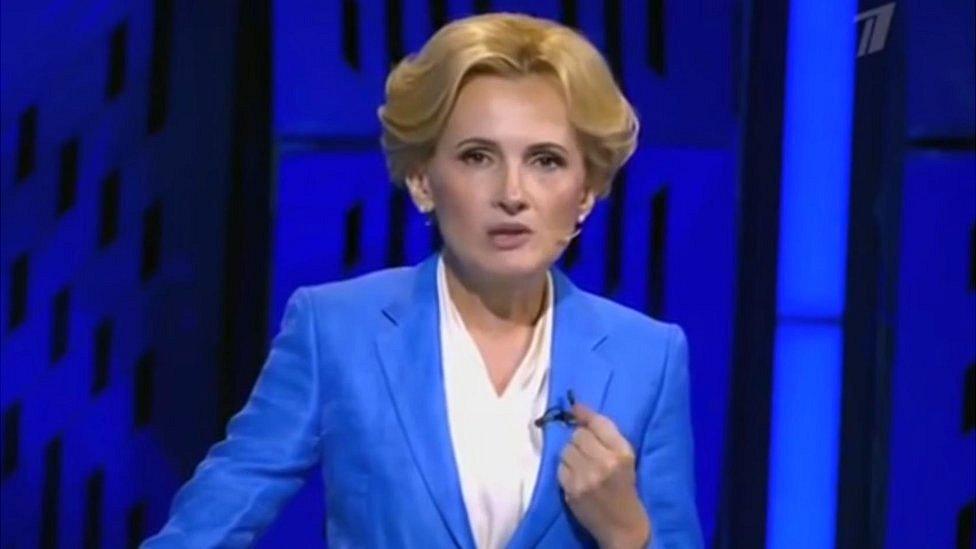
MP Irina Yarovaya was one of the few women taking part - defending the ruling United Russia party
Some of the other minor parties' tactics have also raised eyebrows. For the Communists of Russia (not to be confused with the official Communist Party), the debates have been a chance to hammer home their slogan of the "10 Stalinist strikes against capitalism and Western imperialism".
But the most significant aspect of this election's debates, marking them out from previous ones, has been the presence of Parnas, the only party that is consistently and outspokenly critical of President Putin.
Impeachment
On the official channel Rossiya 1 on 22 August, Mr Maltsev stole the show with his calls for Mr Putin to be impeached.
"If the Tsar doesn't know what is going on in the country, he should be put in the madhouse. If he does know and doesn't stop it, he should be put in jail," he said to applause from his small band of supporters.
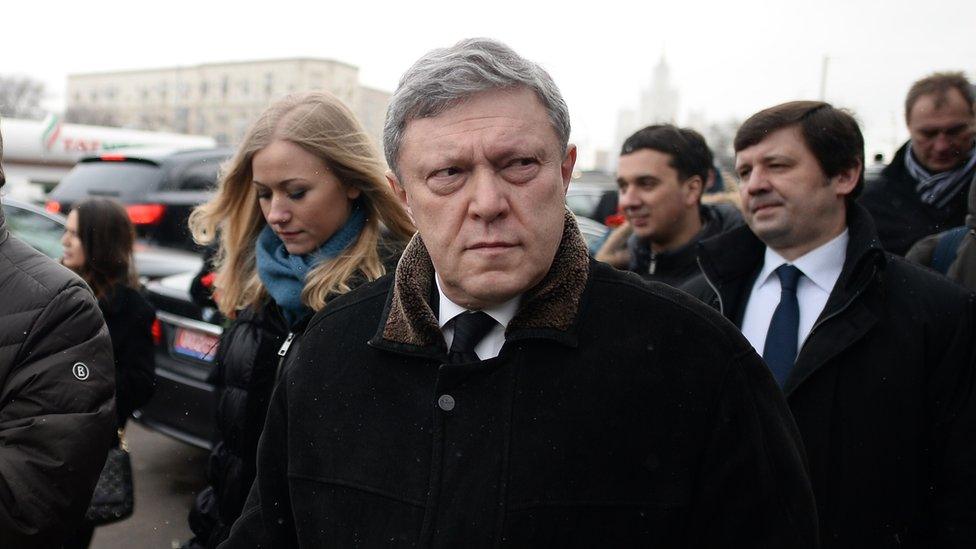
Grigory Yavlinsky of the opposition Yabloko party
Mr Maltsev went on to urge all those who opposed Mr Putin to put their hands up. All the other candidates, including veteran politician Grigory Yavlinsky of the opposition Yabloko party, kept theirs by their sides.
As one social media user, external said, nothing quite like this has been seen on national TV in the past 15 years.
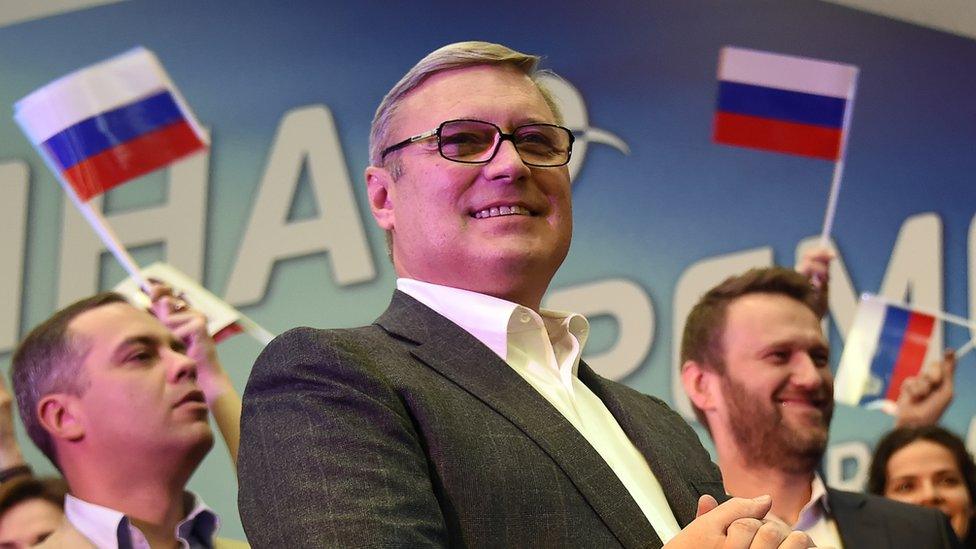
Former Prime Minister Mikhail Kasyanov is seen as a liberal candidate
The sober-suited and more measured Mr Kasyanov has also had his moments. In a recent debate on Channel One, the fact that other candidates turned on him seemed to work to his advantage, as he became the centre of the discussion.
But Parnas candidates have not only had to fend off attacks from rivals. They have also had to contend with hostility from moderators and other interventions.
Parnas candidate and historian Andrei Zubov, external says that as he came to the end of a speech criticising Russia's annexation of Crimea, during a recorded debate on a Moscow TV channel, a klaxon sounded and a red light started flashing. He was apparently in danger of breaking a law that bans statements undermining Russia's territorial integrity.
Low public interest
These moments of drama, though, have been few and far between. In fact, many of the so-called debates were not real debates at all, but simply a series of statements delivered by the candidates to camera.
The parties were largely represented by men, and any discussion often descended into a macho shouting match.
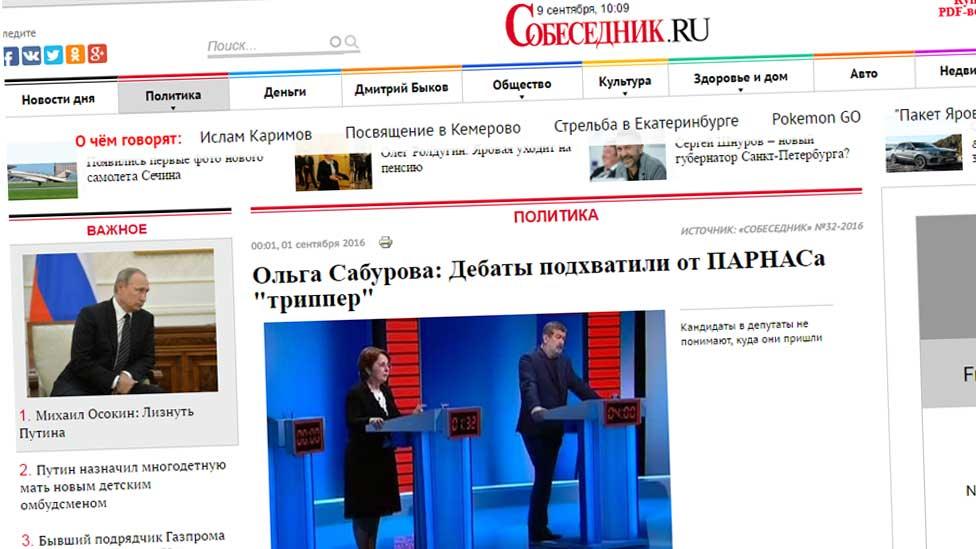
Weekly publication Sobesednik was critical of the debates
Olga Saburova, TV critic for the weekly Sobesednik, external, said that when one of the participants suggested engaging in a proper discussion, he was told: "This is not envisaged in today's format."
The debates have generally failed to grab the public's interest. In a poll by the Levada Centre, external just 20% of respondents said they were watching them on an ongoing basis, while 43% said they had no intention of watching them at all.
As for Parnas, external, despite getting its rare moment in the sun, polls suggest its chances of making a breakthrough in the election and getting into parliament are slim.
BBC Monitoring reports and analyses news from TV, radio, web and print media around the world. You can follow BBC Monitoring on Twitter, external and Facebook, external.
- Published5 September 2016
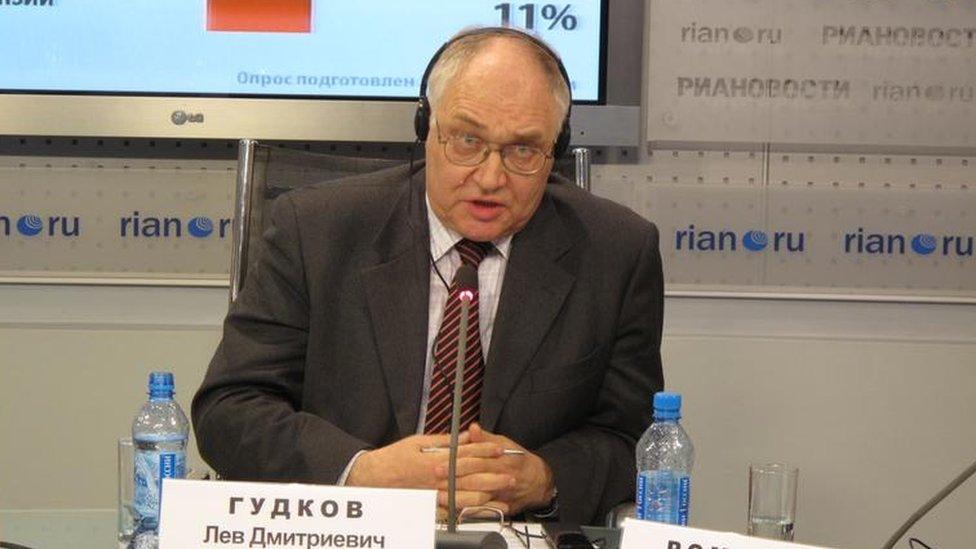
- Published8 September 2016
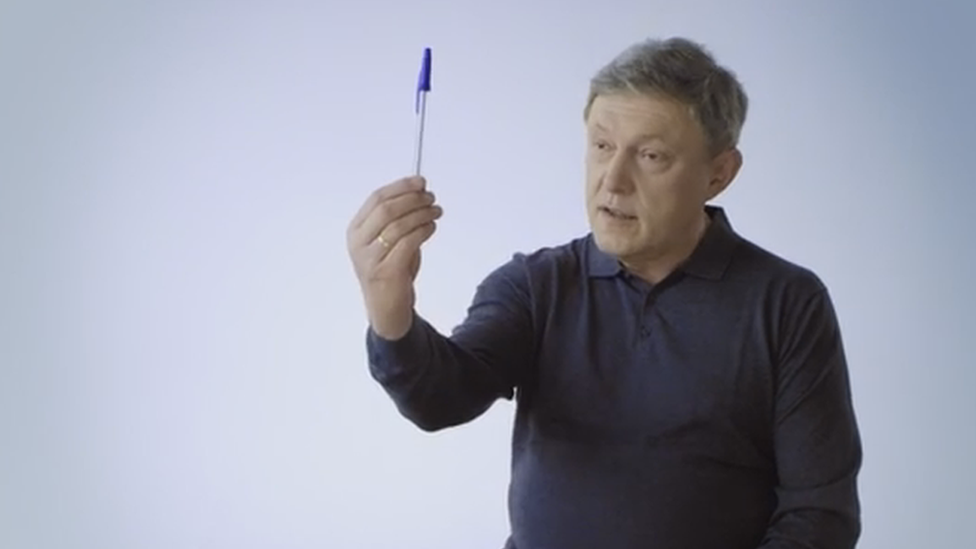
- Published25 August 2016
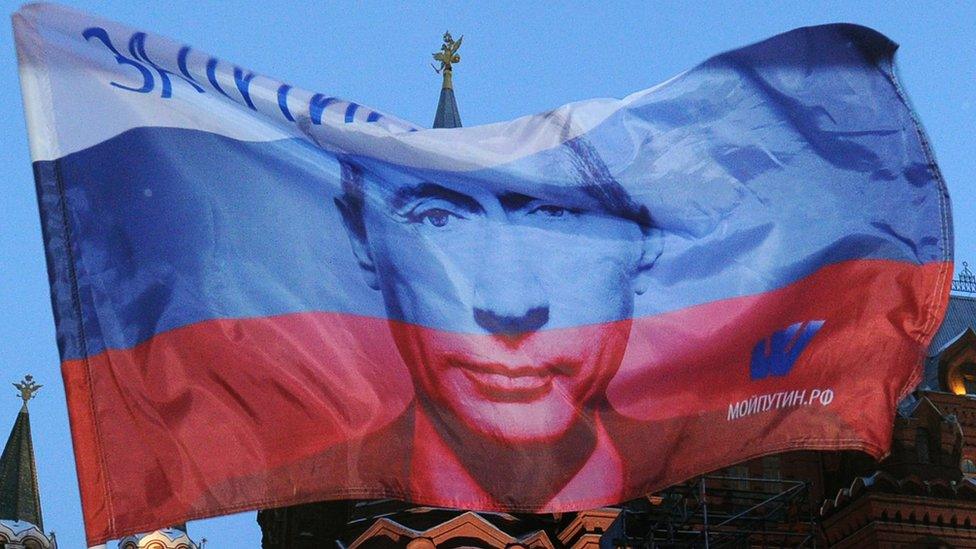
- Published25 March 2024
